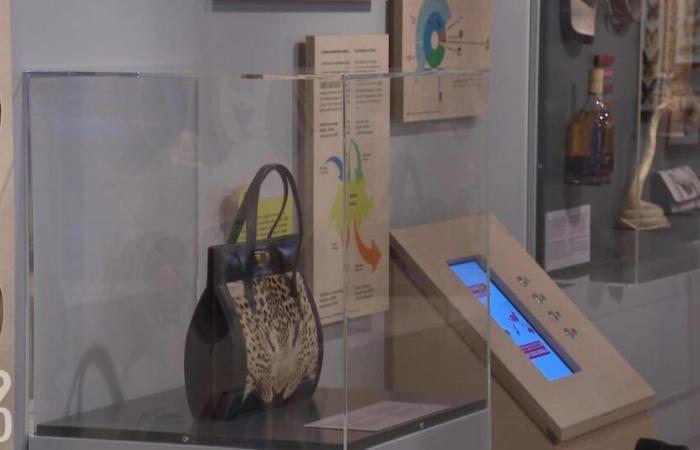Raised animals, skulls, leather bags and even a whale vertebra are to be discovered at the Swiss Museum of Customs in Gandria (TI) as part of the exhibition “The conservation of species concerns us all”. To see until October 19.
In Gandria, on the shores of Lagano Lake, the Swiss Customs Museum highlights the functions of the border and those who monitor it nowadays as in the past. Until October, an exhibition is devoted to species protected by the CITES, the Convention on International Trade in Species of Wild Wild flora and flora threatened with extinction.
Entitled in French “The conservation of species concerns us all”, it aims to promote the 40,000 protected species and to explain the role of customs in this area. Most of the exhibits are “prohibited vacation memories” that have been confiscated and are in a warehouse of the Federal Office for Food Security and Veterinary Affairs.
A necessary ethical reflection
By emphasizing the work carried out by Swiss customs to combat the illegal import of animals and plants, the museum wishes to inform the public as to the conservation of protected animal and plant species threatened with extinction by making prevention and by carrying out a real ethical reflection. A necessary prevention, since by bringing unauthorized objects from their travels, holidaymakers and vacationers are exposed to fines that can rise to several thousand francs.
“The most important thing is to think that before doing something, we have to learn. We would also like to make the public think about ethics, because this is only how we can contribute to a better climate and biodiversity,” said Maria Moser, director of the Swiss Customs Museum, in the 19:30 of May 2.
-The case of orchids and cacti
The exhibition shows strange, unlikely, even questionable objects brought back from vacation by travelers.
It also highlights products that can be purchased without difficulty in Switzerland, when they sometimes require authorizations when purchased abroad. This is the case for cacti or orchids for example. “These are protected plants. They cannot be picked up without an authorization. And therefore, they must be accompanied by a certificate, an authorization from the CITES,” said Sonja Burri, the operations of the Swiss Customs Museum.
TV subject: Chloé Steulet and RSI
Adaptation web: ld
“The conservation of species concerns us all” (“La Conservazione Delle Specie Riguarda Tutti Noi”), Swiss Customs Museum, Gandria (TI), from April 20 to October 19, 2025.








